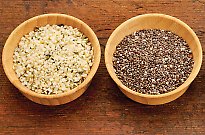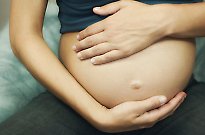
Pregnancy - foods to avoid

There's a lot of conflicting information about what you can and can't eat during pregnancy. Natasha Meerding gives us the definitve list of foods to avoid.
During pregnancy there is an increased focus on foods to avoid – these are foods that have the potential to be dangerous to your baby’s health. There is a lot of confusion about what these foods are and why they are not recommended during pregnancy. Susanna Nelson spoke to dietician Natasha Meerding to put an end to the confusion about what foods we can't eat while pregnant
LISTERIA
Most pregnant women know about listeria – it is one of the most widely discussed elements of the pregnancy diet. Listeria is a type of bacteria commonly found in uncooked food or meals that have been handled in an unhygienic way. Listeriosis, the food poisoning caused by listeria, is rare in the healthy adult population, but it is very serious if contracted during pregnancy and can cause miscarriage. The bacteria are commonly found in cold meats, soft cheeses (including feta), shellfish and uncooked sandwich-bar prepared foods. The dilemma for pregnant women is that the guidelines seem to indicate that, when purchasing pre-prepared food, it can be safer to opt for the meat pie than the salad sandwich, because the pie is ‘safer’, even if it is not nutritionally better. Natasha says the solution is to seek out soups and other healthy cooked options when eating out, and to make a judgment about whether you trust the food outlet in terms of its hygiene practices, food freshness and turnover if you choose a salad sandwich. Cold meats and other food products with a long fridge life should still be avoided. “When in doubt, the best solution is to heat the food thoroughly, as this will kill the bacteria,” says Natasha. “The rule of thumb is that well-cooked food is not a listeria risk.”
MERCURY CONTENT IN FISH
Fish is a highly nutritious food and contains many important vitamins and minerals, as well as omega-3 fatty acids and iodine, which are both building blocks for the good health of your baby. Iodine in particular is essential in pregnancy. But many varieties of fish should also be avoided or rationed in pregnancy because of mercury content. The risk here is of a different nature to the listeria risk. A single listeria infection is an immediate cause for concern. On the other hand, mercury content slowly accumulates in the body over time. It is therefore important to monitor the amount of fish you are eating during pregnancy – not to stop eating it altogether. That said, there are some fish varieties that should be avoided if possible. These include larger fish like shark (flake), marlin, swordfish and broadbill. There are guidelines that suggest that one serve of these fish can be eaten once a fortnight, but it is important not to eat any other fish during that time. Or one serve per week of orange roughy (sea perch) or catfish and no other fish that week. For other fish the recommendation is two to three serves of fish per week, where one serve is 150 grams.
BEVERAGES
There is no safe level of alcohol consumption during pregnancy. Avoid it. Coffee and energy drinks containing caffeine and other additives are best restricted. “To be safe it is best to have no more than one regular espresso, three cups of instant coffee or four cups of tea per day. Energy drinks are not recommended as they may contain high levels of caffeine,” says Natasha.
Kick-start your child's intellect with these pregnancy supplements designed to boost brain power. Trying to conceive? Try these natural fertility boosters. Don't forget to follow us on Facebook and Twitter for more natural health advice.
Photocredit: Thinkstock


